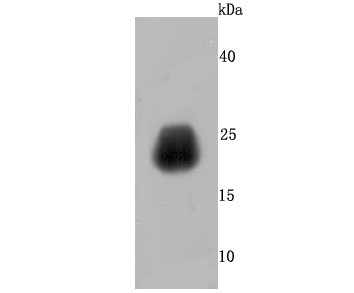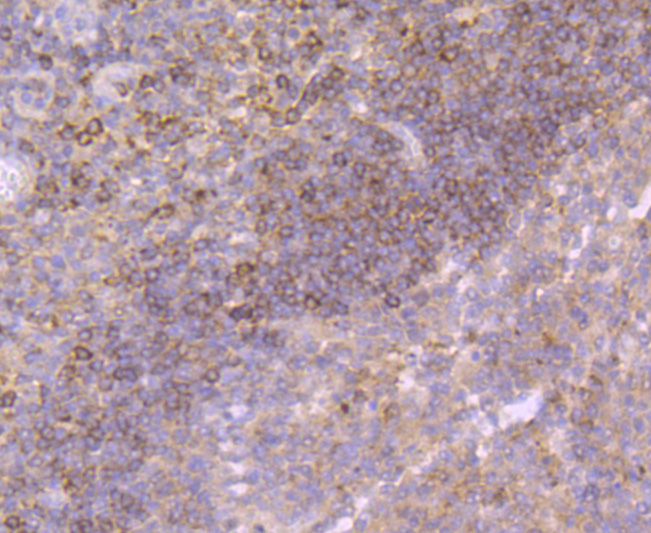Pituitary growth hormone (GH), also designated somatotropin, plays a crucial role in stimulating and controlling the growth, metabolism and differentiation of many mammalian cell types by modulating the synthesis of multiple mRNA species. These effects are mediated by the binding of GH to its membrane-bound receptor, GHR, and involve a phosphorylation cascade that results in the modulation of numerous signaling pathways. GH is secreted in a pulsatile pattern which is tightly controlled by the interplay of GH-releasing hormone (GHRH) and somatostatin (SRIF). GHRH and SRIF are the primary hypothalamic factors that determine GH secretion from the somatotroph and regulate GH synthesis and secretory reserve. GH output is also highly sensitive to feedback control by GH itself, as well as by insulin-like growth factor I. GH is synthesized by acidophilic or somatotropic cells of the anterior pituitary gland. Human growth hormone contains 191 amino acid residues with two disulfide bridges.




